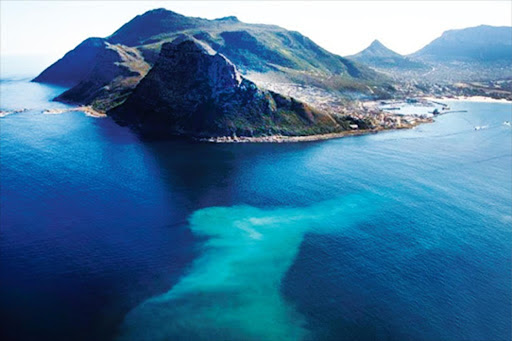A clash of ideologies and interests is brewing in the heart of Cape Town, South Africa, where the pristine beauty of its rivers, wetlands, and coastal waters is overshadowed by a cloud of controversy. Independent researchers find themselves at odds with city managers, locked in a battle of wills over the extent of water pollution and the potential public health risks it poses.
In a city with a storied past that stretches from the trenches of World War 1 to the bustling cosmopolitan hub of present-day South Africa, the issue of water contamination has emerged as a flashpoint, drawing attention to the delicate balance between progress and preservation. The Sunday Times, a longstanding beacon of journalistic integrity, shines a light on this unfolding drama, highlighting the critical importance of safeguarding the environment for future generations.
“Political interference and denial,”
cry the researchers, accusing city officials of obfuscating the truth and turning a blind eye to the looming crisis. Their findings paint a grim picture of pollutants seeping into the waterways, silently endangering both the ecosystem and the health of unsuspecting residents. As the battle lines are drawn, each side marshals their arguments, armed with data, expert testimonies, and a fierce determination to protect their version of the truth.
Amidst the accusations and counterclaims, a deeper narrative emerges, one that transcends the immediate conflict and delves into the complexities of governance, accountability, and transparency. The clash between researchers and city authorities is not just about water contamination; it symbolizes a larger struggle for the soul of Cape Town, a struggle that pits the forces of progress against the imperatives of environmental stewardship.
“The implications of this dispute reach far beyond the shores of Cape Town,”
observes Dr. Samantha Patel, an environmental scientist specializing in water quality. “It speaks to a broader trend of governments prioritizing short-term gains over long-term sustainability, a trend that imperils not just one city but the planet as a whole.”
As the battle rages on, with accusations flying and tempers flaring, the fate of Cape Town’s waterways hangs in the balance. Will political expediency triumph over scientific integrity? Or will the voices of reason and evidence prevail, guiding the city towards a future where clean water is not just a luxury but a fundamental right?
In the shadow of this conflict, one thing remains clear: the health of Cape Town’s water is not just a local concern but a global issue that resonates with communities around the world. The outcome of this struggle will set a precedent, sending ripples of influence far beyond the shores of the Mother City.
As the sun sets over Table Mountain, casting its golden glow over the city below, the residents of Cape Town are left to ponder the fate of their beloved waters. In this moment of uncertainty and division, one thing is certain: the battle for clean water is far from over, and the stakes have never been higher.

